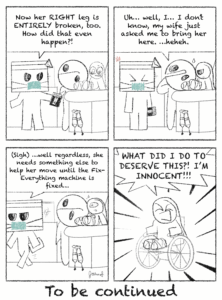The beta application process for President Joe Biden’s partial federal student debt cancellation initiative opened Friday evening, just under two weeks after UR’s SA Senate passed a statement calling for the cancellation of all federal student debt.
The new application will allow most federal student loan borrowers to apply for the cancellation of up to $10,000 in federal student debt and Pell Grant recipients to apply for up to $20,000 in cancellations. Students who use the beta version of the application will receive a confirmation email but will not have their applications processed until the website officially launches on a date expected to be before the end of October. Beta application submitters will not need to reapply.
With cancellations drawing nearer, the SA Senate has made it clear that they do not think the Biden administration is going far enough.
Sponsored by SA President Adrija Bhattacharjee and Vice President Sybilla Moore with co-sponsorships by sophomore Senators Navya Bhagat and Daniel Pyskaty, the new SA statement fell largely in line with the letter signed by Bhattacharjee in September which claimed that full federal student loan cancellation would expand educational opportunities, help “close the racial wealth gap and promote equity in higher education,” and would “help our economy recover from the COVID-19 recession.”
Both this statement and the letter were partially coordinated by the Student Debt Crisis Center, for whom Bhattacharjee has worked as an Economic Justice Fellow since early August. The statement passed without dissent or significant deliberation, and the document contains a number of factual errors.
At the start, it claims that “nationally there is $1.7 trillion of federal student loan debt in the United States” based on a report by the Education Data Initiative. The report actually lists the $1.7 trillion figure as the country’s total student loan debt figure. Outstanding federal student loan debt totals $1.62 trillion, according to the report.
The statement also inaccurately claims that “students who take out federal loans graduate with an average student loan debt of $22,597” based on financial aid data provided on UR’s admissions website. In reality, the site says that all students in the class of 2020 graduated with an average federal student loan debt of $22,597. The population from which the average was taken was the entire 2020 graduating cohort, not just federal loan recipients, and the $22,597 figure is referring to federal student debt totals rather than overall student debt totals.
Additionally, the statement inaccurately claims that white women owe an average of $31,436 in student loan debt and that Black women owe an average of $37,558, both according to a report by the American Association of University Women. The report actually takes those averages from white and Black women who took out loans, not all white and Black women, so the populations being averaged are white and Black female student loan borrowers.
Finally, based on a 2016 Urban Institute report, the statement also claims that Black borrowers owe an average of $32,047 in student loans “four years after graduation” while white borrowers owe an average of $18,685 and Hispanic borrowers owe an average of $15,853. Those figures were actually averages taken from the entire population of those races aged 25-55, not just snapshotted four years out from graduation. The report also categorizes home equity loans, credit card loans, and other loans used to pay for someone’s education as student debt, not just student loans.
The inaccuracies were all slips in precise data representation. Though, with no uncertainty, the document ends with a straightforward call:
“LET IT BE FURTHER RESOLVED THAT the University of Rochester Students’ Association in SA Senate Assembled, supports calls upon President Joe Biden to cancel all federally held student loan debt. The University of Rochester Students’ Association supports student governments throughout the state of New York, the public and private college systems, and the United States that release similar statements supporting the cancellation of student loan debt.”


